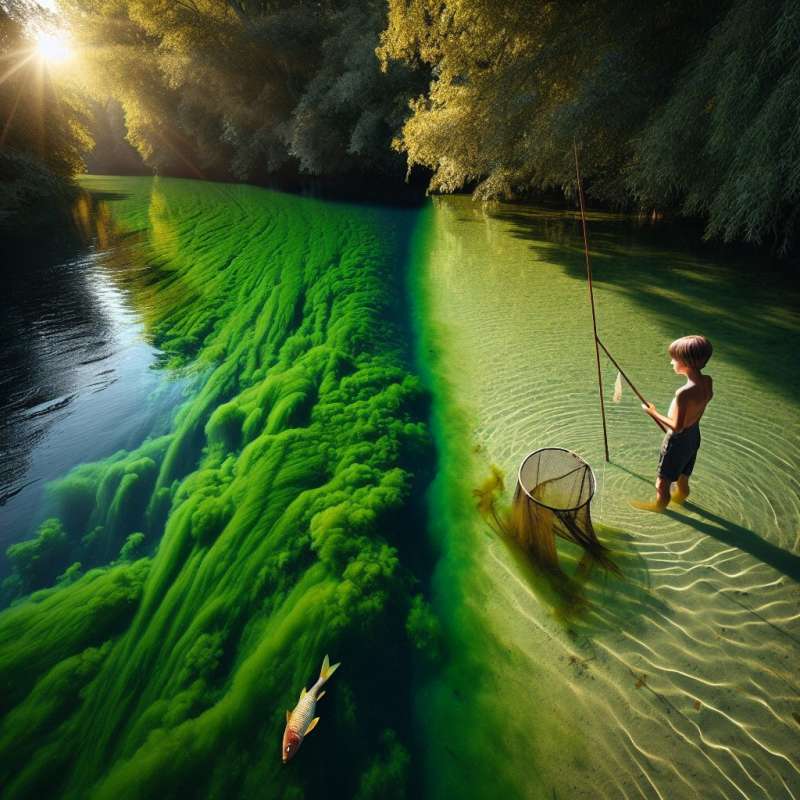
Algae: Earth's Oxygen Factories
Algae are predominantly aquatic, photosynthetic organisms. They produce nearly half of the world's oxygen, outdoing forests and playing a crucial role in atmospheric balance.
Diverse Algae Kingdom
Algae comprise a vast array of organisms, from microscopic phytoplankton to gigantic kelp. This diversity exists across various habitats, including freshwater, marine, and even snow.
Ancient Algal Ancestors
The earliest algae-like structures date back 3.5 billion years. These ancient forms are the precursors to land plants, sharing a common ancestor with modern algae.
Algae in Global Economies
Algae have numerous commercial applications. They're used in food, fertilizers, biofuels, and even skincare products, showcasing their versatile economic importance.
Climate Change Warriors
Algae absorb carbon dioxide during photosynthesis. Large algal blooms can significantly reduce CO2 levels, potentially mitigating climate change impacts.
Algal Bloom Downside
Harmful algal blooms, caused by excessive nutrient pollution, can devastate ecosystems. They produce toxins affecting marine life and human health, and deplete oxygen in water, causing dead zones.
Future of Algae Research
Innovative research focuses on algae's potential to produce sustainable biofuels and bioplastics. Algae-based technologies are emerging as eco-friendly solutions to environmental challenges.Space Algae Survivors
Algae can survive in space, enduring extreme conditions. This resilience makes them candidates for future space missions and extraterrestrial bio-systems.
What percentage of oxygen is produced by algae?
Nearly 50%
About 75%
Around 30%
Company